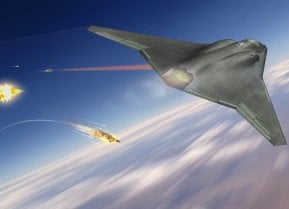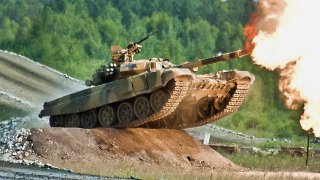Fighting a ‘Holy War’: North Korea’s Role in Putin’s Crusade Against Ukraine
Amidst Russia’s conflict with Ukraine, North Korea’s support underscores an emerging, loose alliance with China, Iran, and Russia that challenges global stability. North Korea’s supply of arms and troops, despite economic limitations, bolsters Russian efforts.
What You Need to Know: Amidst Russia’s conflict with Ukraine, North Korea’s support underscores an emerging, loose alliance with China, Iran, and Russia that challenges global stability. North Korea’s supply of arms and troops, despite economic limitations, bolsters Russian efforts.
-Meanwhile, China, while publicly restrained, has assisted Russia’s war economy, and Iran provides drones and strategic aid.
-This coalition reflects a multipolar ideology, opposed to Western liberalism and international norms. Leaders in Moscow, Beijing, Pyongyang, and Tehran align in ambition and political ideology, posing a unified front that threatens global peace and demands a recalibrated response from Western governments and their allies.
North Korea Backs Russia’s War Effort – A New Axis Emerges?
“The longer and more carefully we look at a funny story,” noted Nikolai Gogol, “the sadder it becomes.”
Observing the unfolding events around North Korea, one is reminded of the famous novelist’s quip about the human condition. For all the economic failings and peculiarities of its political system, the decision by Pyongyang to enter Russia’s war against Ukraine is a stark reminder of why the West has little to be smug or complacent about.
In stark contrast to Ukraine’s Western allies, North Korea has supported the Russian military campaign far out of proportion to its relative economic capacity. Drawing on existing stockpiles, the country has provided Russia with large supplies of artillery, rockets, and short-range ballistic missiles.
These deliveries have been critical, blunting Ukraine’s offensive and clearing the ground for incremental Russian advances. Furthermore, beginning in October 2024, it has dispatched at least 8,000 of its troops, ostensibly to assist the Russian Armed Forces in their fight around Kursk. In return, Russia has provided North Korea with food supplies, cash, and defense-industrial technology.
The military value of the North Korean troop deployments, as they stand, can be disputed. In a situation characterized by positional warfare, they cannot be used as Russian infantry is used now, due to lack of interpreters. Neither can they be used as whole units, as they were deployed without heavy equipment such as tanks or other armored vehicles. Used sparingly, nevertheless, they may help free up Russian troops for the frontlines.
For Ukraine, as highlighted by the country’s president Volodymyr Zelenskyy, the entry of a second nuclear weapons state into the war represents a situation fraught with potential danger.
The broader implications should indeed be a matter of concern. Whether or not there is an emerging new axis, constituting not merely Russia and North Korea but also China and Iran, or simply a ‘marriage of convenience’ between two outcasts in the international system, is beyond the point. Russia’s war against Ukraine has global security dimensions, and the political leaders in Moscow, Beijing, Pyongyang, and Teheran share similar, although not identical, goals.
Chinese leader Xi Jinping, having declared a “no limits partnership” with Vladimir Putin weeks before Russia’s large-scale invasion of Ukraine in 2022, has been content to assist the Russian war economy with inputs and dual-use technologies. One struggles to find any hard evidence for the claim that Beijing is seriously concerned over the North Korean bromance with Russia. Iran has sent its drones to the Russian war effort, and Russia, in return, has provided the Houthis, an Iranian proxy, with satellite data for ships in the Red Sea. Russia and China, in their capacity as permanent members of the United Nations Security Council, have in turn given diplomatic cover for any country willing to challenge the “Western-led” order, regardless of the implications for human rights, peace, or the embattled UN Charter.
There is a great deal of alignment of interests between Russia, China, North Korea, and Iran in terms of foreign policy ambition. All four countries share a willingness to build a new international security architecture, often referred to as ‘multipolar.’ Putin has described Russia as locked in an "anti-colonial" struggle with the “collective West,” dubbing the U.S. a “global neo-colonial dictatorship.”
Previously, he has insisted that Russia, with its invasion of Ukraine, is defending its “traditional values” in a fight against threats as diverse as Western liberalism, Satan, and Nazism. The Foreign Minister of North Korea, Choe Son-hui, recently remarked that her country supports Russia in its "holy war."
Russian President Vladimir Putin seems undeterred by the apparent contradiction in his claims of Russia being, on the one hand, a sovereign, self-sufficient power with the capacity to independently influence events in world affairs, and on the other hand, a victim of Western dominance.
It is plausible that Putin, somehow, can reconcile the two conflicting perspectives, with Russia being an empire and a paragon of anti-imperialism at the same time. Performing the role of the victim was always politically convenient, and his grievances about a Western menace may also resonate with audiences abroad.
Pondering whether the world is dealing with a new axis or not, one should recall that the cooperation between Russia, China, Iran, and North Korea in certain regards already goes beyond whatever cooperation Nazi Germany was able to achieve with Italy and Japan during the Second World War.
Italian troops fought on the Eastern front, but Hitler, notably, also came to despise Mussolini. In 1943, he attacked Italy, and the German dictator never coordinated any of his decisions with Hirohito. They had nothing comparable to the active exchanges between the war-time allies of Roosevelt, Churchill, and Stalin, and there was no axis equivalent to U.S. lend-lease for the United Kingdom and the Soviet Union.
Historical analogies, for obvious reasons, have limited explanatory value. The exercise of analyzing the past should not be conducted for pejorative reasons, as in comparing Putin with Hitler or Xi with Hirohito for the sake of taking the moral high ground. Likewise, genuine motives of political leaders, not least in authoritarian states where accountability is low, can be hard to disentangle. For sure, self-serving proclamations from Moscow or Pyongyang should be treated with requisite skepticism.
With that said, the deepening ties between Russia, China, Iran, and North Korea constitute a grave threat to all countries in their geopolitical crosshairs, from Ukraine to Taiwan. Regardless of the formal nature of their entanglements, they challenge stability and order in Europe, the Middle East, and Asia. In doing so, they coordinate their actions. Furthermore, they share and give voice to a common worldview, albeit not necessarily ideologically coherent, which serves as political glue. To decouple this relationship, as some analysts have suggested, is an attractive idea but would be easier said than done.
The safe assumption is that current challenges are long-term and global, rooted in opposing visions of order, not completely dissimilar to what the situation was during the Second World War. Governments in the U.S., Europe, and Asia face increasingly stark choices. The threats to Ukraine will not disappear, and the failure of the country’s Western supporters to allow the country to defend itself by international law has made it less well-positioned for a negotiated settlement, a scenario now favored by the incoming U.S. President Donald Trump, and possibly several European governments.
The security situation in the world is changing, and not necessarily in a direction favorable for the maintenance of peace and stability.
About the Author:
Martin Kragh is Deputy Director of the Stockholm Centre for Eastern European Studies at the Swedish Institute of International Affairs, and Associate Professor at the Institute for Russian and Eurasian Studies at Uppsala University.
Image Credit: Creative Commons and/or Shutterstock.


